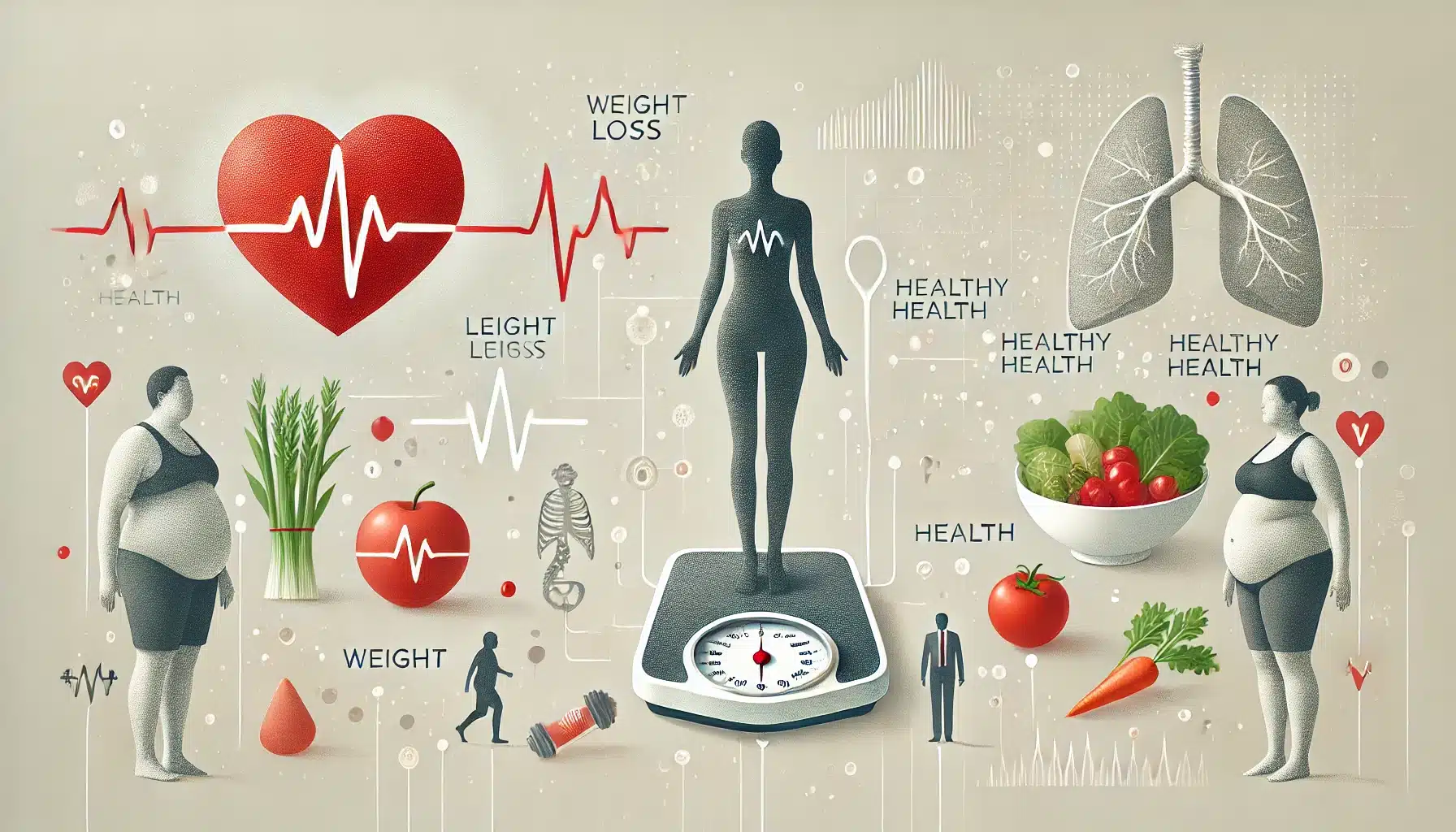Understanding Heart-Healthy Weight Loss
Heart-healthy weight loss focuses on achieving a healthy weight through dietary and lifestyle changes that support cardiovascular health. Unlike many fad diets that prioritize rapid weight loss at the expense of nutritional balance, heart-healthy weight loss emphasizes sustainable eating habits, balanced nutrition, and regular physical activity. This approach not only aids in losing excess weight but also significantly reduces the risk of heart disease, hypertension, and other chronic conditions.
When adopting a heart-healthy weight loss plan, the goal is to make gradual changes that are maintainable in the long term. This includes consuming nutrient-dense foods, limiting intake of unhealthy fats and sugars, and ensuring that every meal supports your heart’s well-being. Let’s explore what heart-healthy weight loss entails and why it is a crucial element of overall health management.
What is Heart-Healthy Weight Loss?
Heart-healthy weight loss is a dietary and lifestyle strategy designed to promote weight loss while protecting and improving heart health. This involves reducing calorie intake in a way that ensures you are still getting all essential nutrients needed for optimal body function. Key elements include prioritizing foods that are low in saturated fats, added sugars, and sodium while being rich in fiber, antioxidants, and healthy fats. This type of diet not only aids in weight reduction but also supports lower blood pressure, cholesterol levels, and reduced inflammation.
Why is Heart Health Important in Weight Loss?

Maintaining heart health during weight loss is crucial because the heart plays a vital role in the overall functioning of the body. Diets that are too restrictive or imbalanced can put undue stress on the heart, leading to negative health outcomes. For instance, diets high in trans fats, excessive sodium, or refined sugars can increase the risk of cardiovascular diseases, even if they result in short-term weight loss. Therefore, a heart-healthy approach to weight loss not only helps you shed pounds but also protects against heart attacks, strokes, and other heart-related conditions.
Key Principles of a Heart-Healthy Diet
A heart-healthy diet is characterized by a balance of nutrients that support cardiovascular health and overall well-being. It emphasizes foods that provide essential vitamins, minerals, and antioxidants, while limiting those that can contribute to heart disease. Understanding the key principles of a heart-healthy diet can help guide your meal planning and food choices to achieve weight loss goals without compromising heart health.
Balanced Nutrition
Balanced nutrition is the foundation of a heart-healthy diet. This means incorporating a variety of food groups into your daily meals, including fruits, vegetables, whole grains, lean proteins, and healthy fats. A well-rounded diet ensures that you receive a wide range of nutrients that work together to support heart function, reduce inflammation, and maintain a healthy weight. Portion control is also critical, as overeating—even healthy foods—can lead to weight gain and increased strain on the heart.
Reducing Saturated Fats and Sugars
Saturated fats and added sugars are two of the most significant contributors to heart disease. Saturated fats, found in red meat, full-fat dairy products, and processed foods, can raise LDL cholesterol levels, which increases the risk of heart attacks and strokes. Similarly, excessive sugar intake can lead to weight gain, diabetes, and other metabolic disorders that negatively impact heart health. Opt for healthier fat sources like olive oil, nuts, and avocados, and replace sugary snacks with fruits or yogurt.
Importance of Fiber and Whole Grains
Fiber and whole grains play a vital role in heart-healthy weight loss by promoting digestive health, lowering cholesterol, and helping to regulate blood sugar levels. Foods high in soluble fiber, such as oats, beans, and certain fruits, can help reduce the absorption of cholesterol into your bloodstream. Whole grains like quinoa, brown rice, and whole wheat provide essential nutrients and are more filling than refined grains, which can help with weight control by keeping you satisfied longer.
Best Diet Plans for Heart-Healthy Weight Loss
Choosing the right diet plan is crucial for achieving heart-healthy weight loss. Several diet plans have been specifically designed or adapted to support cardiovascular health while promoting weight loss. These plans focus on incorporating nutrient-rich foods, reducing harmful dietary components, and encouraging sustainable eating habits. Below are some of the best diet plans known for their heart-health benefits.

The DASH Diet
The Dietary Approaches to Stop Hypertension (DASH) diet was initially developed to help lower blood pressure but has also been proven effective for heart-healthy weight loss. The DASH diet emphasizes the consumption of fruits, vegetables, whole grains, lean proteins, and low-fat dairy products while limiting sodium, red meat, and sugary beverages. It is rich in potassium, calcium, and magnesium—nutrients that help control blood pressure and support heart function. By focusing on whole foods and balanced nutrition, the DASH diet helps in achieving weight loss without compromising heart health.
The Mediterranean Diet
The Mediterranean diet is widely recognized for its heart-health benefits and is often recommended for weight loss. This diet emphasizes the consumption of olive oil, fruits, vegetables, whole grains, nuts, and fish, which are rich in omega-3 fatty acids. It limits the intake of red meat, processed foods, and added sugars. The Mediterranean diet supports heart health by providing a high intake of antioxidants, healthy fats, and fiber, which collectively work to reduce inflammation, lower cholesterol, and promote healthy weight loss. Studies have shown that adherence to the Mediterranean diet can lead to improved cardiovascular outcomes and sustainable weight management.
The Plant-Based Diet
A plant-based diet focuses on consuming mostly or entirely foods derived from plants, including vegetables, fruits, whole grains, nuts, seeds, and legumes. This diet limits or excludes animal products, which can be high in saturated fats and cholesterol. Plant-based diets are naturally high in fiber, vitamins, and antioxidants, making them highly effective for heart-healthy weight loss. Research indicates that plant-based eating patterns can reduce the risk of heart disease, lower blood pressure, and aid in weight loss by promoting satiety and reducing calorie intake. For those concerned about meeting protein needs, plant-based diets can include ample protein sources such as beans, lentils, and tofu.
Tips for Maintaining a Heart-Healthy Diet
Maintaining a heart-healthy diet requires consistency and mindful choices. It’s not just about selecting the right foods but also about adopting habits that support long-term heart health and weight management. Below are some practical tips to help you stay on track with your heart-healthy eating plan.

Portion Control
Portion control is essential in a heart-healthy diet because it helps prevent overeating and maintains calorie balance. Even when consuming healthy foods, eating large portions can lead to weight gain, which negatively impacts heart health. To practice portion control, use smaller plates, measure servings, and listen to your body’s hunger and fullness cues. Including a variety of foods in appropriate portions ensures you get the necessary nutrients without excessive calorie intake.
Monitoring Sodium Intake
Excessive sodium intake is linked to high blood pressure, a significant risk factor for heart disease. Reducing sodium in your diet is crucial for maintaining heart health, especially for individuals with hypertension or those at risk of cardiovascular conditions. To lower sodium intake, avoid processed and pre-packaged foods, which often contain high levels of added salt. Instead, opt for fresh ingredients and use herbs, spices, and other salt-free seasonings to enhance the flavor of your meals.
Regular Physical Activity
Physical activity is a critical component of heart-healthy weight loss. Regular exercise helps improve cardiovascular fitness, boost metabolism, and enhance overall well-being. Aim for at least 150 minutes of moderate-intensity exercise per week, such as brisk walking, cycling, or swimming. Incorporating strength training exercises twice a week can also help build muscle, which supports metabolism and weight management. Remember that staying active not only aids in weight loss but also strengthens the heart and improves circulation.
Common Mistakes to Avoid
While following a heart-healthy diet for weight loss, it’s important to be aware of common pitfalls that can hinder your progress. Avoiding these mistakes can help you stay on track and achieve your goals more effectively.

Skipping Meals
Skipping meals, particularly breakfast, can disrupt your metabolism and lead to overeating later in the day. It can also cause your blood sugar levels to fluctuate, which is not conducive to heart health.
- Slows Metabolism: Skipping meals can slow down your metabolism, making it harder to lose weight.
- Increases Cravings: Missing meals can lead to intense cravings, especially for high-sugar or high-fat foods.
- Impacts Blood Sugar: Irregular eating patterns can cause unstable blood sugar levels, increasing the risk of diabetes and heart disease.
Relying on Processed Foods
Processed foods are often high in unhealthy fats, sugars, and sodium, which can negate the benefits of a heart-healthy diet. It’s important to focus on whole, unprocessed foods to maintain optimal heart health.
- Hidden Sugars and Fats: Many processed foods contain hidden sugars and unhealthy fats that contribute to weight gain and heart disease.
- High Sodium Content: Processed foods are typically high in sodium, which can raise blood pressure and increase the risk of heart problems.
- Lack of Nutrients: Processed foods often lack essential nutrients found in whole foods, leading to nutritional deficiencies.
FAQ
Heart-healthy weight loss can be a complex topic, and it’s natural to have questions. Here are some of the most frequently asked questions about heart-healthy diets and weight loss, along with informative answers to help guide your journey.
What are the best foods for heart-healthy weight loss?
Foods that are high in fiber, lean proteins, healthy fats, and whole grains are excellent for heart-healthy weight loss. Examples include:
- Leafy Greens: Spinach, kale, and other greens are low in calories but high in vitamins, minerals, and fiber.
- Berries: Blueberries, strawberries, and raspberries are rich in antioxidants and fiber.
- Nuts and Seeds: Almonds, chia seeds, and flaxseeds provide healthy fats and protein.
- Oily Fish: Salmon, mackerel, and sardines are excellent sources of omega-3 fatty acids.
How quickly can I expect to lose weight with a heart-healthy diet?
Weight loss rates can vary, but a safe and sustainable pace is typically 1-2 pounds per week when following a heart-healthy diet and engaging in regular physical activity. Key factors include:
- Consistency: Regular adherence to your diet and exercise plan is essential for steady progress.
- Caloric Deficit: Ensuring you consume fewer calories than you burn will aid in weight loss.
- Individual Metabolism: Personal metabolic rates can affect how quickly you lose weight.
Can heart-healthy diets help lower cholesterol?
Yes, heart-healthy diets are specifically designed to help lower LDL (bad) cholesterol levels, which is crucial for reducing the risk of heart disease. Effective strategies include:
- Eating Soluble Fiber: Foods like oats, beans, and apples can help lower cholesterol absorption in the bloodstream.
- Choosing Healthy Fats: Replacing saturated fats with unsaturated fats from sources like olive oil and avocados.
- Limiting Trans Fats: Avoiding trans fats found in many processed and fried foods helps improve cholesterol levels.


